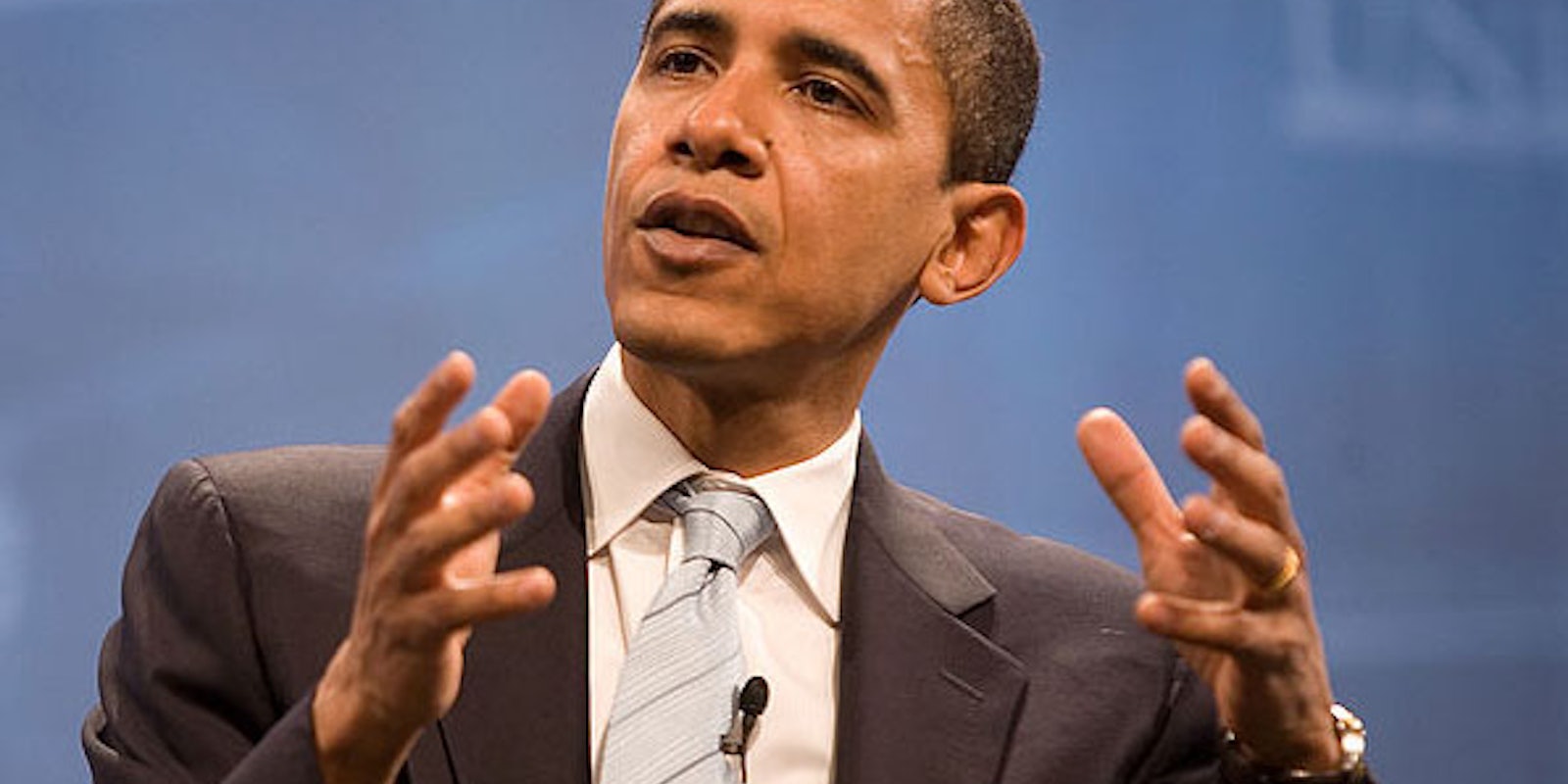With a new letter to President Obama, members of congress want you to believe they’re taking a hard-line stance in support of Internet freedom. But don’t be fooled. It’s all bit a of sleight-of-hand, designed to push their own restrictive legislation through congress.
Eleven House and Senate Republicans, many of whom are members of the House Committee on Energy and Commerce, have penned an open letter to President Obama, urging him, for the sake of “online freedom,” not to pass an executive order on cybersecurity.
Since some members of the U.N. are pushing for it to take greater control of the Internet (including China and Russia, which have dismal records on Internet freedom), the letter argues, a “unilateral” executive order would “will almost certainly be exploited by other nations to justify their efforts to regulate the Internet.”
Instead, they argue, Obama should encourage and sign the Cyber Intelligence Security Protection Act (CISPA), or at the very least, not create a distinction in his order between so-called “critical” and “non-critical” infrastructure. The problem is that, depending on who you talk to, both of those options might achieve the opposite of Internet freedom.
The argument against CISPA has made the rounds for months. The bill, which passed the House in April but is currently languishing in a lame duck session in the Senate, is a common Republican talking point—the RNC alludes to its virtues in its 2012 platform. But privacy advocates are worried, since a byproduct of CISPA is that in cases of a cyber attack, federal agencies would get complete access to anybody’s user data, even if it had nothing to do with the attack, which could then be used in court against them.
The notion of making a distinction between critical and non-critical infrastructure, though, has gotten less attention. President Obama plans to make such a distinction in his proposed executive order. We do know he wants to incentivize networks to adopt stronger protections against cyber attacks (or force them, at their own cost, according to some Republicans’ slippery slope counterarguments).
But some, like Senator Ron Wyden (D-Oreg.) say that the only way a cybersecurity law can be effective is if it acknowledges the difference between critical systems—like the power plants, for instance, which would have significantly increased security—and social networks, like Facebook, which wouldn’t receive such protection, but would also be immune from government snooping.
The Committee on Energy and Commerce didn’t respond to the Daily Dot’s request for clarification on how this could affect Internet freedom.
Both parties have pledged to defend Internet freedom in their official 2012 platforms, but neither has offered much in the way of specifics. In fact, the only concrete issue that both seem to agree on is that they would oppose the U.N. having more control over the Internet.
Photo via Wikimedia Commons


